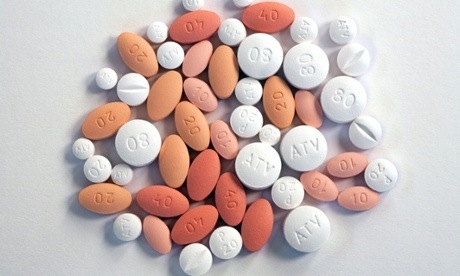
The federal court has dismissed a case against Pfizer Australia which claimed the pharmaceutical giant misused its market power and engaged in anti-competitive conduct in the way it supplied one of its blockbuster drugs to pharmacists.
In January 2012 Pfizer began offering heavy discounts and rebates to pharmacists for its brand-name statin, Lipitor, on the condition the pharmacy also buy a minimum 12 months’ supply of Pfizer’s cheaper generic version of the same drug.
Pfizer was set to lose its patent protection for Lipitor in May 2012, which meant from that date other companies would be allowed to produce and sell their own cheaper versions of the cholesterol-lowering drug.
The Australian Competition and Consumer Commission (ACCC) alleged that in offering heavy discounts just before losing its patent over Lipitor, Pfizer had aimed to deter or prevent competitors entering the market.
The commission also alleged Pfizer had engaged in anti-competitive conduct.
But on Wednesday Justice Geoffrey Flick dismissed the case, saying there was not enough evidence to prove the claims.
He found while Pfizer had taken advantage of its market power by engaging in the alleged conduct, this power was no longer substantial at the time the offers to pharmacists were made.
The commission was now carefully considering the judgment, its chairman, Rod Sims said.
“The ACCC brought this case because it raised important public interest issues regarding the conduct of a patent holder nearing the expiry of that patent and what constitutes permissible competitive conduct,” he said.
A Pfizer Australia spokeswoman said the company had always maintained its behaviour was appropriate and met high ethical standards.
“During the court’s considerations we have continued our work with clinicians and pharmacists, who prescribe and dispense Pfizer medicines to patients every day,” she said.
“We will maintain this strong focus, in the interests of improved patient health outcomes.”
For the decade to 2013, Lipitor was the highest-selling prescription drug under the government’s Pharmaceutical Benefits Scheme, costing taxpayers $7bn.
Statins are among the most widely prescribed drugs in the world.
A spokesman for the Consumers Health Forum, Mark Metherell, said while he was not in a position to challenge the court finding, the organisation was concerned arrangements between drug companies and pharmacists were affecting the prices consumers paid for medicines.
“The extraordinary complexity of the pharmaceutical pricing system means that nobody really knows what’s going on,” he said.
“There is very little public knowledge of pricing of these drugs, and many of these drugs are much cheaper globally than what Australians are paying.”
A leaked draft of the Trans-Pacific Partnership Agreement this week contained provisions proposed by the US that would further protect the monopoly pharmaceutical companies hold over drugs, and delay cheaper versions from entering the market, the Medical Journal of Australia reported.
Do you know more? Contact melissa.davey@theguardian.com
